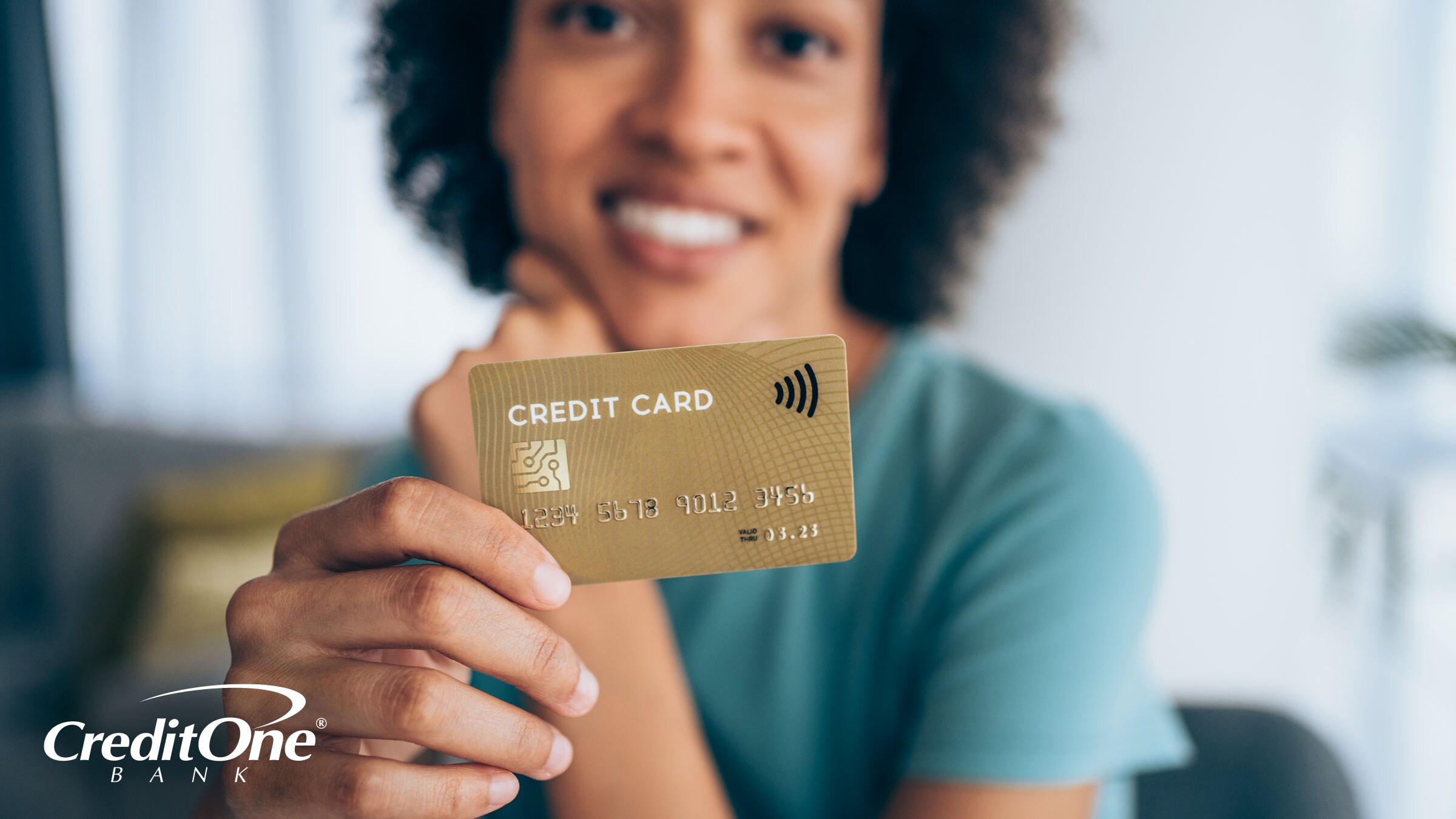
What Is the Point of a Credit Card?
November 15, 2021
Topics:
Credit CardWhy a credit card? If you’re not sure what the point of a credit card is, this article is for you.

Before applying for your first credit card, it’s important to first consider what the point of a credit card is in the first place. Why have one, and what can it do for you that cash or a debit card can’t?
Here are a few reasons to apply for a credit card you may not have considered.
What is the point of a credit card?
The point of a credit card is right in the name. It’s a 3.37” x 2.125” card made of plastic or metal that grants you instant credit—up to a preset credit line. If you’ve been issued a credit card, and your account is current, you can use it to purchase goods and services on credit up to your account’s credit limit. You don’t need to apply for a loan. You’re essentially granted an instant loan by the credit card issuer right then and there because they pay the merchant for the goods or services you’re purchasing. You, in turn, pay back the card issuer for your purchases, either by paying the outstanding balance owed in full or making partial payments until the outstanding balance is paid in full.
Instant credit can be helpful if you don’t currently have the funds to purchase something you need. Say, for example, you need to buy groceries but you don’t get paid until next week and don’t have enough funds on hand or in the bank to pay with cash or debit card. With a credit card, you can purchase those groceries today and pay for them later, after you get paid.
What type of credit does a credit card offer?
A credit card is considered revolving credit because you can use it repeatedly and continually free up available credit by making payments. It differs from installment credit, which gives you a lump sum of funds up front and you then pay off those funds in regular payments of a predetermined amount over a specified time period.
So, let’s say you have a credit card with a credit limit of $500, and you make purchases of $250 over the course of the card’s billing cycle. That means you can still make another $250 worth of purchases until you reach the card’s $500 limit, at which point you probably won’t be able to make any more purchases. But you can free up credit on your account by making payments. If, for example, you pay your $250 outstanding balance in full and on time, as soon as the card issuer posts your payment, you’ll once again have $500 in available credit. The account “revolves” in that it continually replenishes as you pay off what you owe. Exactly how much it replenishes depends on how much you pay each billing cycle.
Is credit provided by a credit card free?
If your credit card has no annual fee, a grace period, you pay your outstanding balance on time each month, and you don’t accumulate any other penalties or fees, then, yes, a credit card essentially provides you with credit for free. However, if your credit card does not have a grace period, or it does but you don’t pay your outstanding balance in full each month, then you will be charged interest on your purchases. In addition to an annual fee, you may also be subject to other fees, such as late-payment fees if you don’t pay at least the minimum amount due on time each month.
Do I really need a credit card?
If you have an abundance of cash at your disposal, only do business with merchants and vendors who accept cash or debit card payments, and plan on living out your life that way, then you may have no need for a credit card. But that’s not really a viable way of life for most of us in the twenty-first century, especially if we want to buy houses or cars or other big-ticket items on credit.
If you fall into the latter category, here are SEVEN REASONS YOU MAY WANT A CREDIT CARD:
- A Credit Card Is Helpful in Emergencies: Let’s say your car breaks down and you need an expensive tow but don’t have any cash on hand or in your account. Having a credit card could bail you out of this emergency situation and many more.
- A Credit Card Is Convenient: Carrying a credit card with $1,000 in available credit means you don’t have to carry around $1,000 in cash—or have $1,000 in your bank account—to have the same amount of purchasing power.
- A Credit Card Could Earn You Rewards: If you have a rewards credit card, using it to buy eligible items gets you more than just the item—it also earns you rewards that can be redeemed for cash back rewards, merchandise, discounts, travel, and more, depending on the card.
- A Credit Card Helps You Build Credit History: Most credit cards report your account activity and payment history to one or more of the three major credit bureaus. A positive history makes you more attractive to potential creditors, which could result in more or new credit and more favorable terms down the road if and when you want it.
- A Credit Card May Offer Purchase Protection: Many credit card companies offer extended warranties, cover damage or loss, and/or provide return protection on items purchased with their card.
- A Credit Card Is Easily Replaced: If your credit card is lost or stolen, it can be replaced with a phone call. If cash is lost or stolen, kiss it goodbye.
- A Credit Card Offers Protection Against Fraud: If your card or card information is stolen and used to make unauthorized purchases, under federal law, the most you can be held liable for is $50. And many credit card issuers, Credit One Bank included, offer Zero Fraud Liability, so you won’t be accountable for any unauthorized purchases made with your card.
So, what’s the point of a credit card? It offers convenience, security, peace of mind, and possibly even rewards just for using it. But here’s the caveat. For a credit card to work for you, you need to use it responsibly. Responsible use of a credit card can help you get the things you need now and, if you want it, more credit later.
Ready to take advantage of the benefits offered by a Credit One Bank credit card? See if you Pre-Qualify for a Credit One Bank credit card. It takes less than a minute and won’t harm your credit score.
After realizing he couldn’t pay back his outrageous film school student loans with rejection notices from Hollywood studios, Sean focused his screenwriting skills on scripting corporate videos. Videos led to marketing communications, which led to articles and, before he knew it, Sean was making a living as a writer. He continues to do so today by leveraging his expertise in credit, financial planning, wealth-building, and living your best life for Credit One Bank.



